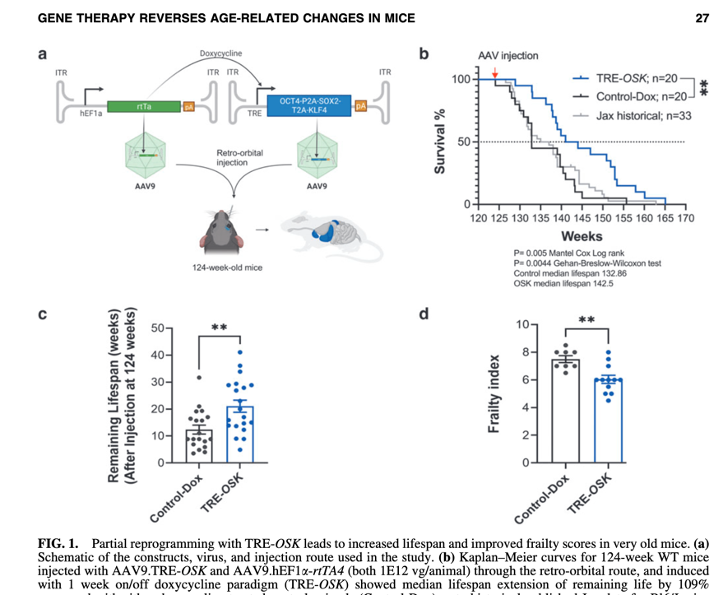Journal club April 2024
April 2024: Gene Therapy-Mediated Partial Reprogramming Extends Lifespan and Reverses Age-Related Changes in Aged Mice. Macip CC, et al. (Corresponding author: Davidsohn N), Cellular Reprogramming 2024; 26, 24-32.
Study Description and Significance: Adenoviral vectors designed to induce expression of Yamanaka factors human genes (OCT4, SOX2, KLF4; OSK) in 124-week-old male mice injected through the orbit increased lifespan by 9.5 weeks and improved frailty index compared to control group mice (i.e., the aging index improved). DNA methylation patterns, a reported biomarker of aging, were also reduced in the liver and heart. This study suggests gene therapy with OSK could be applied to regulate aging and aging-associated diseases.
Comments: The organs in which all three Yamanaka factors were expressed were the liver and heart; no significant increase in expression was found in the brain, pancreas, or skin. In the spleen, only SOX2 expression was increased among the three. The mechanism explaining the OSK factor expression pattern in each organ and the increase in lifespan is still being determined. In the whole brain, the expression levels of Yamanaka factors did not significantly increase. I would like to see changes in expression levels in specific brain regions, e.g., in the hypothalamus and neural stem cells. A particular group of cells may also express the OSK in the other organs. (Isao Shimokawa)

